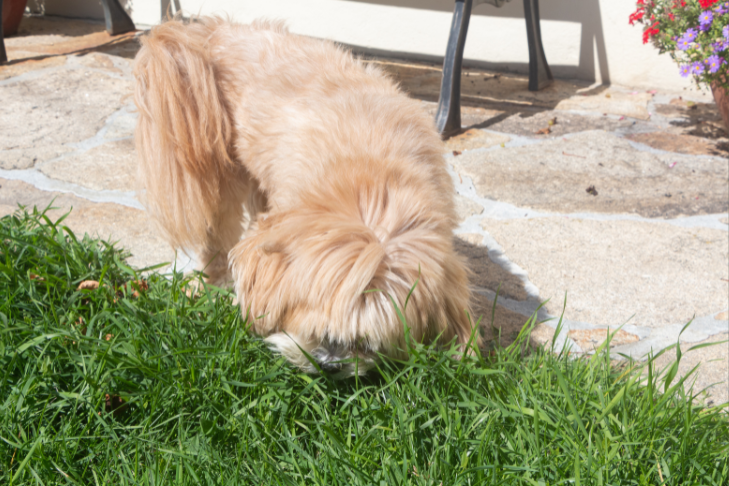Why Is My Dog Eating Poop?

If you’ve ever found yourself wondering, "Why is my dog eating poop?" you’re not alone. This behavior, known as coprophagia, is surprisingly common among dogs and often catches pet parents off guard. While unpleasant, there are several reasons dogs engage in poop eating, and understanding the root cause is the first step toward managing it.
Common Reasons Dogs Eat Poop
There are both behavioral and physical reasons for a dog eating feces. Understanding the “why” behind this behavior can help you take the right steps to correct it:
- Instinctual behavior: In the wild, mother dogs clean up after their puppies by eating their waste to protect the den. According to the American Kennel Club (AKC), this instinct can carry over to adulthood, particularly in multi-dog households.
- Exploration in puppies: Puppies explore their environment with their mouths and may sample feces out of curiosity. PetMD notes that coprophagia in puppies is often a temporary developmental stage.
- Nutritional deficiencies: Dogs who are not absorbing nutrients properly might instinctively search for those nutrients elsewhere (like in grass!) If your dog eats poop regularly, this could indicate an issue with digestion or diet quality.
- Digestive imbalance: Poor gut health can contribute to coprophagia. Supporting your dog’s digestive system with targeted supplements may help reduce the behavior.
- Stress: Dogs under emotional stress may develop unwanted behaviors like poop eating. VCA Animal Hospitals reports that stress-related behaviors are common in dogs experiencing change, isolation, or boredom.
- Attention-seeking behavior: Dogs may learn that eating poop results in a big reaction from their humans. This can unintentionally reinforce the behavior if the dog is seeking interaction or stimulation.
Is It Bad If My Dog Eats Poop?
In many cases, eating poop is more of a behavioral issue than a medical one. However, it can expose dogs to harmful bacteria, parasites, or toxins, especially if they are eating the feces of other animals. Frequent or sudden onset coprophagia should always be discussed with your veterinarian to rule out underlying health concerns.
How to Stop a Dog From Eating Poop
Managing this behavior takes patience and consistency. Here are a few vet-recommended and pet parent-approved tips for how to stop dogs from eating poop:
- Clean up immediately: Remove feces from your yard or walking area as soon as possible to reduce temptation.
- Feed a high-quality, digestible diet: Choose dog food that is easy to digest and provides complete and balanced nutrition to minimize cravings related to deficiencies.
- Support gut health: A healthy digestive tract improves nutrient absorption and may help reduce poop-eating tendencies.
- Address stress: Stress and boredom can lead to unwanted behaviors.
- Use positive reinforcement: Praise and reward your dog for ignoring stool and redirect their attention with a toy, treat, or command.
When to Talk to Your Vet
If your dog suddenly starts eating poop, or if the behavior is persistent despite your best efforts, it’s time for a veterinary consultation. Conditions such as pancreatic insufficiency, parasites, or enzyme deficiencies could be involved. Your vet may recommend lab tests or dietary changes to get to the root of the issue.
Bottom Line
Poop eating is one of the less glamorous parts of dog parenting, but rest assured, it’s usually manageable. With the right support, a healthy routine, and attention to your dog’s digestive and emotional needs, most dogs can break the habit. If you’re dealing with coprophagia, know that you’re not alone, and help is out there.


